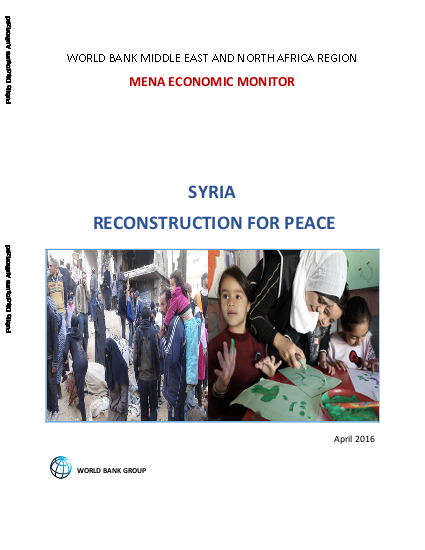
The report provides an economic outlook for the Middle East and North Africa (MENA), predicting that regional GDP growth will average 3 percent for 2016. Due to a combination of civil wars and refugee inflows, terrorist attacks, cheap oil, and a subdued global economic recovery, prospects for faster growth are slim. Civil wars have severely harmed the economies of Syria, Libya, Yemen, and Iraq, and have had spillover effects on the economies of Lebanon and Jordan. MENA’s oil-importing countries will see their growth slow down, despite low oil prices, because of persistent security concerns and slow activity in tourism and remittance inflows. Growth in oil exporting countries, including the six GCC countries, will be affected by persistently low oil prices.
According to the report, peace and reconstruction are two sides of the same coin and a reconstruction strategy for Syria—the most war-ravaged country in the region—could help foster a sustainable peace.
The World Bank Group’s latest MENA Economic Monitor argues that given the persistent impact of the civil war on the Syrian society, and while full-scale reconstruction may have to wait for peace before it can start, development institutions can commit to support an ambitious and inclusive reconstruction strategy that might in itself foster peace. The report illustrates that a more audacious development agenda can help bring about relief and appeasement in the short-term, and stability in the long-term.